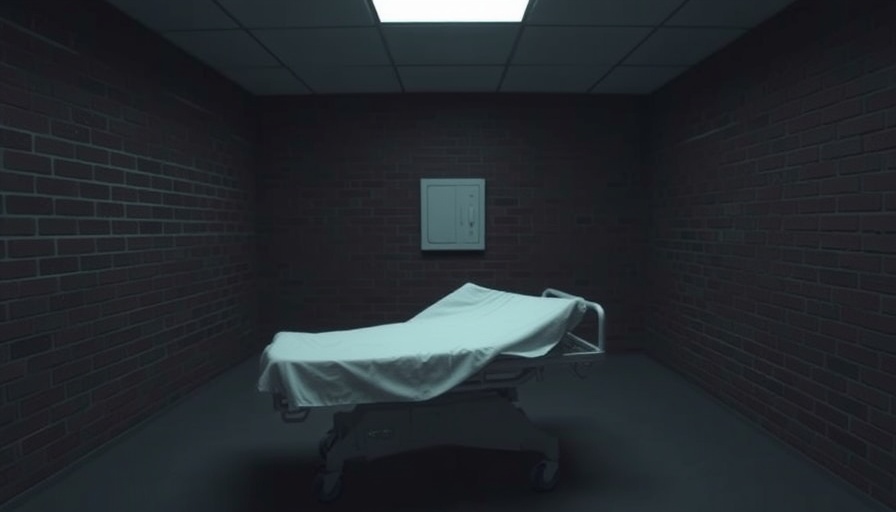
Texas Prepares for Another Execution: The Case of Matthew Johnson
As Texas gears up for the scheduled execution of Matthew Johnson, a complex narrative unfolds surrounding crime, punishment, and the consequences of decisions made in moments of desperation. Johnson, convicted for the 2012 murder of 76-year-old Nancy Harris, is poised to become the fourth person executed in the state this year. His case serves as a stark reminder of the haunting realities embedded within the criminal justice system.
Understanding the Impact of Violence on Community
The killing of Nancy Harris was not just an isolated incident; it rippled through the community of Garland, Texas, raising questions about safety, justice, and the societal factors that contribute to violent crime. Harris, a beloved grandmother, was targeted during a robbery that escalated into tragedy. Witnesses recount the horror of her murder, which not only took a life but devastated a family and community.
The Role of Substance Abuse in Criminal Behavior
Matthew Johnson’s claims of drug use and a troubled background provide insight into the motivations behind his horrific actions. He admitted to being under the influence of drugs during the crime, which he said drove his desperation to commit robbery. This portrait of a life ravaged by addiction poses critical questions: How do society’s failures in addressing substance abuse contribute to such tragedies? What preventive measures could be put in place to avert similar incidents?
The Trial and Jury Sentencing: A Discussion of Justice
During his trial, Johnson's admission of guilt was clear; however, the debate of whether he truly understood the repercussions of his actions—or whether drug abuse played a significant role—was fiercely contested. The jury ultimately sentenced him to death, a choice that reflects the charged tensions surrounding capital punishment and the American justice system. The trial highlighted the duality of justice: holding individuals accountable for their actions while also considering the systemic failures that may drive them.
Matthew Johnson: A Life Explored, Regrets Expressed
In the years following his conviction, Johnson has expressed significant remorse for his actions. His heartfelt apologies resonate as he grapples with the implications of his crime. Johnson’s story is not only about murder but also about the painful journey of redemption that many seek within the penal system—a system that often seems indifferent to the complexities of individual circumstances.
The Bigger Picture: Texas' Death Penalty Trend
As the fourth execution this year, Johnson’s case reflects a broader trend in Texas regarding capital punishment. The state has faced scrutiny and debate over the ethics of the death penalty. Advocacy groups argue this method of punishment fails to provide justice, instead perpetuating cycles of violence. Examining Texas’ approach sheds light on an evolving national conversation about the morality and effectiveness of capital punishment.
What Lies Ahead: Toward a More Compassionate Justice System?
Looking forward, the continued reliance on the death penalty raises critical conversations about reforming the justice system. Many advocates argue for more rehabilitative approaches that focus on prevention rather than punishment. What might a world look like where individuals are granted opportunities for rehabilitation, instead of being solely defined by their most grievous mistakes?
The story of Matthew Johnson is a microcosm of a larger societal issue that demands our attention. As we collectively engage in dialogues about crime, punishment, and societal responsibility, we are reminded that every action has profound consequences—not just for the perpetrators, but for the communities left behind. Johnson's upcoming execution serves as a junction for these vital discussions while challenging us to reflect on the future of justice in Texas.
As we await his execution on May 20, the complexity of grief, responsibility, and societal change becomes more pronounced. Justice should strive for more than mere punishment; it needs to foster understanding and healing within the community.
 Add Row
Add Row  Add
Add 




Write A Comment